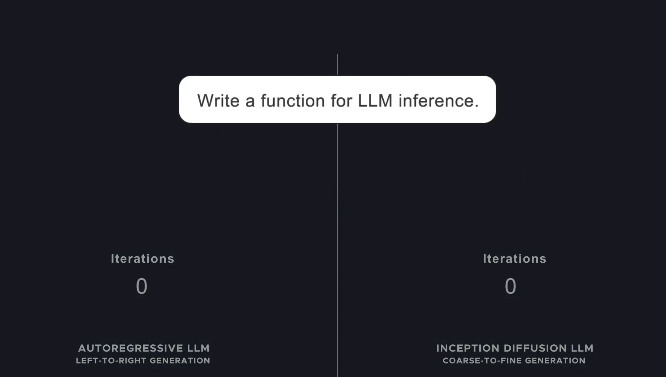Inception, an AI startup, recently announced it has raised $50 million in new funding, returning to the competitive market. The round was led by Menlo Ventures, with participation from companies such as Microsoft M12, Nvidia, Databricks, and Snowflake. Inception's founder and former CEO Mustafa Suleyman sold the company to Microsoft in 2024 to focus on writing long-form blogs about superintelligence.

Now, Inception is focusing on diffusion models (dLLMs), a technology that differs from traditional autoregressive large language models (LLMs). Unlike autoregressive models that generate content word by word, diffusion models create content through a step-by-step refinement process. This technology has primarily been used for image generation, but Inception aims to apply it to text and code generation. Google demonstrated its own diffusion model - Gemini Diffusion - in May 2025.
Inception's new model "Mercury" claims to operate at a speed of over 1,000 tokens per second, while traditional autoregressive models like GPT-5 typically generate between 40 to 60 tokens per second. The Mercury model is currently available to the public through partners such as OpenRouter and Poe, with pricing at $0.25 per million input tokens and $1 per million output tokens, making it faster and more cost-effective than standard language models.
Key points:
🌟 Inception has raised $50 million in funding, returning to the AI competition.
⚙️ The new model Mercury uses diffusion models, which are fast and low-cost.
🚀 Mercury generates over 1,000 tokens per second, surpassing traditional autoregressive models.
